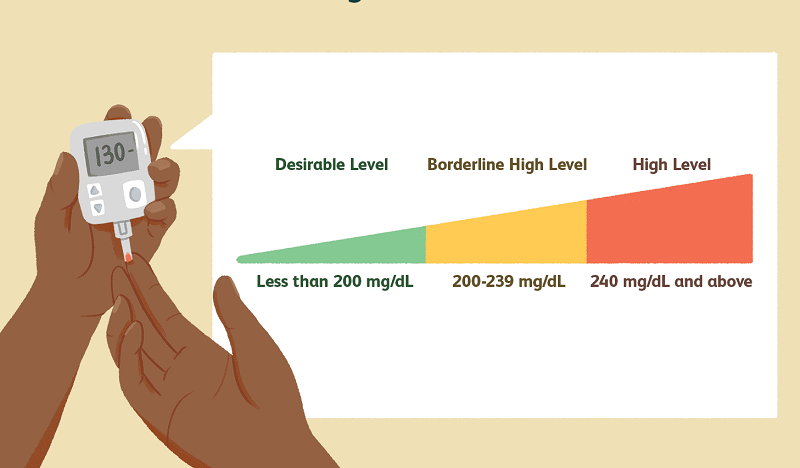Cholesterol is a wax-like substance that is found in the blood and is essential to the body for building healthy tissues and producing hormones. However, having high levels of cholesterol in the blood can be dangerous to the health and lead to various health problems. Understanding cholesterol levels and how to maintain healthy levels is essential for overall health and well-being.
Cholesterol levels are measured by a blood test that looks at three types of cholesterol: low-density lipoprotein (LDL), high-density lipoprotein (HDL), and triglycerides. LDL cholesterol is often referred to as “bad” cholesterol because it can build up in the arteries, causing blockages that can lead to heart attacks and strokes. HDL cholesterol is known as “good” cholesterol because it helps to remove excess cholesterol from the arteries, reducing the risk of heart disease. Triglycerides are a type of fat that can also contribute to the development of heart disease.
The recommended levels of cholesterol are:
– LDL cholesterol: less than 100 mg/dL (2.6 mmol/L)
– HDL cholesterol: greater than 40 mg/dL (1.0 mmol/L) for men and greater than 50 mg/dL (1.3 mmol/L) for women
– Triglycerides: less than 150 mg/dL (1.7 mmol/L)
Having high levels of LDL cholesterol can increase the risk of heart disease and stroke, while having low levels of HDL cholesterol can also increase the risk of heart disease. High triglyceride levels can also be a risk factor for heart disease.
Factors that can contribute to high cholesterol levels include a diet high in saturated and transfat, lack of physical activity, smoking, obesity, and certain medical conditions such as diabetes and hypothyroidism. Family history can also play a role in high cholesterol levels.
To maintain healthy cholesterol levels, lifestyle changes are often recommended. This includes adopting a healthy diet that is high in fruits, vegetables, whole grains, and lean protein. Regular exercise is also important for maintaining healthy levels of cholesterol and maintaining a healthy weight.
In some cases, medications such as statins may be prescribed to help lower cholesterol levels, especially for those with a high risk of heart disease.
Maintaining healthy levels of cholesterol is essential for overall health and well-being. Understanding cholesterol levels and adopting healthy lifestyle habits can help reduce the risk of heart disease and other health problems associated with high cholesterol levels. Regular check-ups with a healthcare provider are also recommended to monitor cholesterol levels and take steps to prevent high cholesterol from becoming a health problem.


